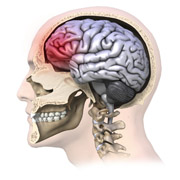Research and Innovation, UNL Office of

Center for Brain, Biology, and Behavior: Faculty Publications
Document Type
Article
Date of this Version
2013
Citation
Published in final edited form as: Dev Neuropsychol. 2013 ; 38(5): 317–336. doi:10.1080/87565641.2013.799169. PMCID: PMC4361951 HHS Public Access
Abstract
The effect of mild sleep restriction on cognitive functioning in young children is unclear, yet sleep loss may impact children's abilities to attend to tasks with high processing demands. In a preliminary investigation, six children (6.6 - 8.3 years of age) with normal sleep patterns performed three tasks: attention (“Oddball”), speech perception (conconant-vowel syllables) and executive function (Directional Stroop). Event-related potentials (ERP) responses were recorded before (Control) and following one-week of 1-hour per day of sleep restriction. Brain activity across all tasks following Sleep Restriction differed from activity during Control Sleep, indicating that minor sleep restriction impacts children's neurocognitive functioning.
Included in
Behavior and Behavior Mechanisms Commons, Nervous System Commons, Other Analytical, Diagnostic and Therapeutic Techniques and Equipment Commons, Other Neuroscience and Neurobiology Commons, Other Psychiatry and Psychology Commons, Rehabilitation and Therapy Commons, Sports Sciences Commons


Comments
Copyright 2013 Taylor & Francis.